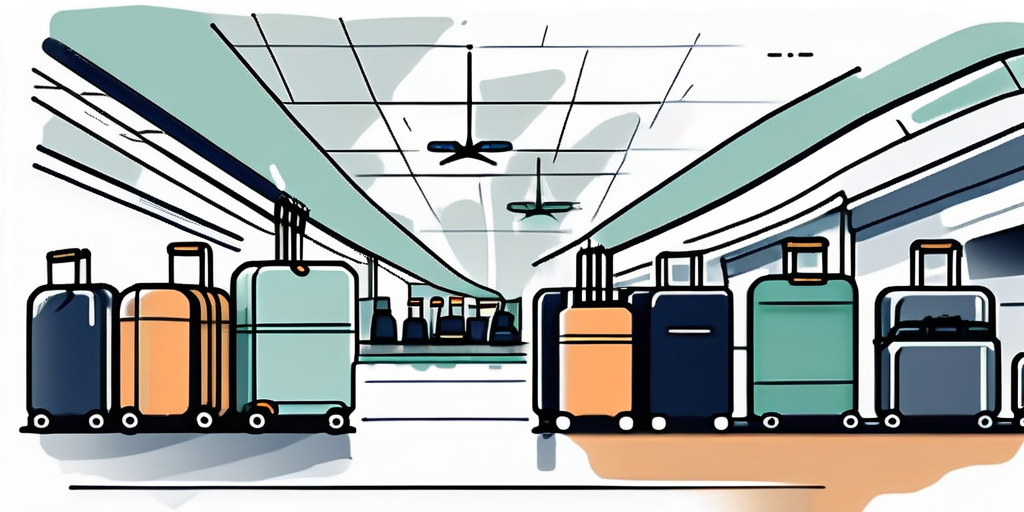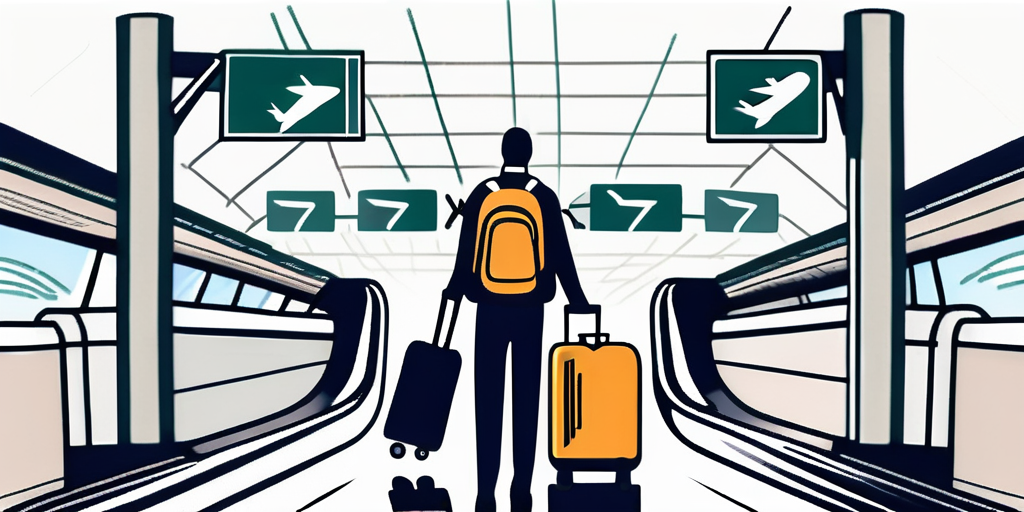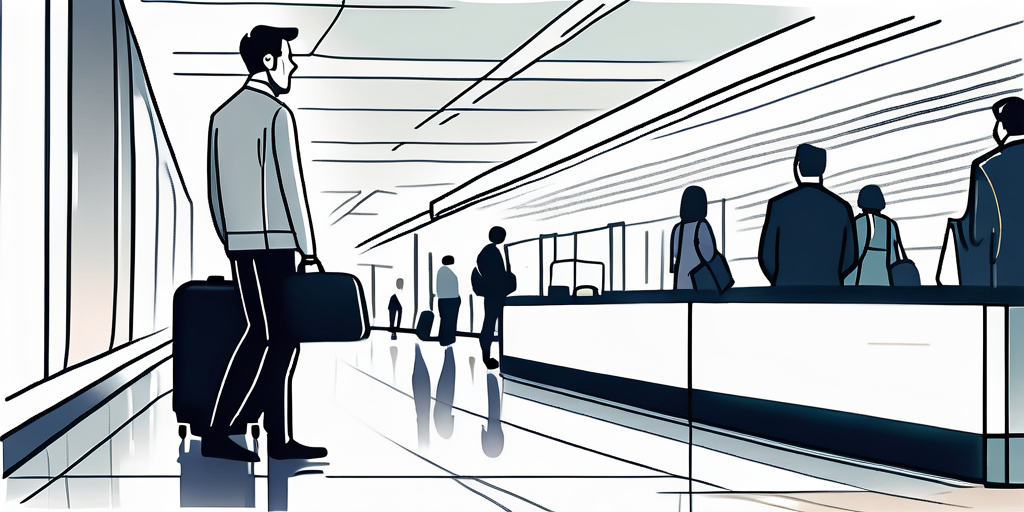Do I Have to Recheck Bags on a Connecting International Flight?
Get guidelines on bag recheck for your international connection. Discover what to expect and how to navigate the process efficiently.
When planning a trip that involves a connecting international flight, one concern that often arises is whether or not you have to recheck your bags during the layover. Understanding the baggage policies and procedures for international flights can help alleviate any confusion or stress that may arise during your journey.
Understanding Baggage Policies for International Flights
Before delving into the specifics of rechecking your bags, it is essential to familiarize yourself with the basics of baggage handling for international flights. Airlines have established guidelines and regulations to ensure smooth and efficient baggage transport throughout your journey.
When you check in your bags at the initial departure airport, they will typically be tagged to your final destination. However, this does not necessarily mean that you will not have to interact with your bags during a layover.
The Basics of Baggage Handling
Baggage handling involves a complex network of processes and systems that ensure your belongings are safely transported from one flight to another. Upon your arrival at the layover airport, your bags will be transferred from the incoming aircraft to the designated baggage handling area.
Here, airport staff will sort and organize the bags according to their respective destinations. In some cases, if your layover is short or there are specific security requirements, you may need to recheck your bags before continuing to your final destination.
Factors Influencing Baggage Recheck
Several factors influence whether or not you have to recheck your bags during a connecting international flight. The duration of your layover, the airport's specific baggage policies, and the airline you are flying with all come into play.
If you have a long layover, it is more likely that you will have to retrieve your bags and go through the check-in process once again. However, if your layover is short, the airline may automatically transfer your bags to the connecting flight without requiring you to recheck them.
Additionally, some airports have specific policies in place that dictate whether or not bags need to be rechecked during a layover. It is important to research and be aware of these policies before your trip, as they can vary from airport to airport.
Furthermore, it is worth noting that the size and weight restrictions for checked baggage may differ between airlines. While one airline may allow you to check in a bag weighing up to 50 pounds without any additional fees, another airline may have a lower weight limit or charge extra for bags over a certain weight. It is crucial to familiarize yourself with your airline's baggage policies to avoid any surprises or unexpected fees.
In addition to weight restrictions, some airlines also have restrictions on the number of bags you can check in. Most airlines allow at least one free checked bag, but additional bags may incur fees. It is important to check your airline's baggage policy to ensure you are aware of any additional charges and to plan accordingly.
Airline-Specific Baggage Policies
Understanding the baggage policies of the airline you are flying with is crucial when it comes to determining if you need to recheck your bags during a layover.
 When it comes to air travel, every airline has its own set of rules and regulations regarding baggage. These policies are put in place to ensure the safety and efficiency of the flight, as well as to manage the limited space available in the aircraft's cargo hold.
When it comes to air travel, every airline has its own set of rules and regulations regarding baggage. These policies are put in place to ensure the safety and efficiency of the flight, as well as to manage the limited space available in the aircraft's cargo hold.
Major Airlines and Their Baggage Policies
Major airlines often have their baggage policies clearly stated on their websites or during the booking process. These policies outline the rules and restrictions regarding the number of bags allowed, weight limits, and any additional fees that may apply.
For example, some airlines may allow passengers to check in one bag for free, while others may charge a fee for each checked bag. Weight limits also vary, with some airlines imposing strict restrictions to ensure that the aircraft remains within its weight limits for a safe takeoff and landing.
Additionally, it is important to note that some airlines have partnerships or alliances with other carriers, which can impact their baggage policies. It is important to check if your flights involve codeshare agreements or interline connections to understand how these arrangements may affect baggage recheck requirements.
Low-Cost Carriers and Baggage Handling
Low-cost carriers, known for their competitive fares, often have different baggage policies compared to major airlines. These policies tend to be more restrictive, with additional charges for checked bags.
When traveling on a low-cost carrier, it is crucial to carefully review their baggage policies to determine if rechecking your bags is necessary and if there are any additional fees involved. Some low-cost carriers may only allow a small personal item on board for free, while charging for any additional bags or larger carry-on items.
It is also worth noting that low-cost carriers may have different procedures for baggage handling. For example, instead of having dedicated baggage handlers, these airlines may require passengers to self-check their bags at designated kiosks or drop-off points. This can help reduce costs and streamline the boarding process, but it is important to be aware of these procedures to avoid any confusion or delays.
Navigating Through Connecting Flights
When planning a trip that involves a connecting flight, it is important to consider the layover duration and the specific baggage policies of the airports you will be transiting through.

Layover Duration and Baggage Recheck
The duration of your layover plays a significant role in whether or not you need to recheck your bags. If you have a short layover, it is more likely that your bags will be automatically transferred to the next flight without requiring any action on your part.
However, if you have a longer layover, it is advisable to check the baggage policies of the airport you will be transiting through. Some airports may require you to claim your bags, clear customs, and recheck them before proceeding to your final destination.
For example, imagine you have a layover at the bustling Dubai International Airport. With its state-of-the-art facilities and efficient baggage handling systems, you can rest assured that your bags will be seamlessly transferred to your connecting flight, regardless of the duration of your layover. This means you can spend your time exploring the airport's luxurious duty-free shops or indulging in a delicious meal at one of its many world-class restaurants, without worrying about the hassle of rechecking your bags.
Airport-Specific Baggage Policies
Each airport has its own specific baggage policies, which can vary from one location to another. It is essential to research and familiarize yourself with the baggage procedures at each airport you will be transiting through.
For instance, if you are traveling through the vibrant city of Tokyo and have a layover at Narita International Airport, you may need to recheck your bags even if your layover is relatively short. This is because Narita Airport follows a strict policy that requires passengers to claim their bags, clear customs, and then recheck them, ensuring the highest level of security and efficiency for all travelers.
By understanding the airport's policies, you can ensure that you are prepared for any necessary steps, such as rechecking your bags, going through security screening, or clearing customs during your layover.
Tips to Avoid Baggage Recheck
If you prefer to avoid the hassle of rechecking your bags during a connecting international flight, there are several steps you can take to minimize the need for this process.
Packing Light for International Travel
One of the most effective ways to avoid baggage recheck is to pack light. By traveling with just carry-on luggage, you can bypass the need to recheck your bags and save time during your layover.
Consider selecting versatile clothing items that can be mixed and matched to create multiple outfits. Additionally, packing travel-sized toiletries and only bringing essential items can help reduce the size and weight of your luggage.
Utilizing Carry-On Luggage Efficiently
When traveling with carry-on luggage, it is important to utilize the space efficiently. Roll your clothes instead of folding them to maximize space and prevent wrinkles. Use packing cubes or compression bags to further optimize the available space in your bag.
Remember to comply with airline regulations regarding carry-on size and weight limits to ensure a smooth journey through security and avoid any issues during boarding.
Dealing with Lost or Delayed Baggage
Although efforts are made to ensure that your baggage accompanies you throughout your journey, mishaps can still occur. In the unfortunate event that your baggage is lost or delayed, understanding the steps to take and your rights can help alleviate the stress of the situation.

Steps to Take When Your Baggage is Lost
If your baggage is lost, it is essential to report the issue to the airline's baggage service immediately. Provide a detailed description of your bags and any distinguishing features. The airline will initiate a search and keep you updated on the progress.
Ensure that you retain copies of all relevant documents, such as your boarding pass and baggage claim tags, as these may be required for filing claims or tracking your baggage.
Compensation and Rights for Delayed Baggage
In the case of delayed baggage, airlines often have policies in place to provide compensation for essential items that you may need during the waiting period. These items could include clothing, toiletries, and other necessary supplies.
It is vital to familiarize yourself with the airline's compensation policies and keep all receipts for eligible expenses. This will facilitate the reimbursement process and ensure that you receive the appropriate compensation.
In conclusion, whether or not you have to recheck your bags on a connecting international flight depends on several factors, including the duration of your layover and the specific baggage policies of the airline and airports involved. By understanding these factors and following the recommended tips, you can navigate through your journey with ease and minimize any inconvenience or stress related to baggage recheck.
Get the Compensation You Deserve with ClaimCompass
If your journey involves a connecting international flight and you face baggage delays, or if you experience flight delays, cancellations, or overbookings, ClaimCompass is here to assist you. We specialize in helping air passengers claim up to 600€ in compensation based on EU Regulation 261/2004. Don't let disruptions ruin your travel experience. Use our compensation calculator to check your eligibility for free and submit a claim. With ClaimCompass, you have a dedicated team to handle your claim, communicate with airlines, and even take legal action if necessary. Remember, there are no fees unless we secure your compensation, and we're committed to enforcing your air passenger rights in Europe. Submit a claim today and let us help you get the compensation you're entitled to.
